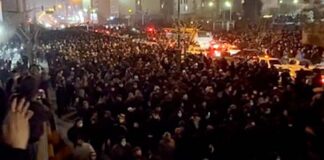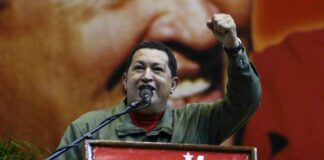On 5 June this year, Saudi Arabia and its Middle East allies made the shock decision to sever diplomatic ties with Qatar, cut off transport access and expel Qatari citizens from their territories. The blockade was called in response to positive comments about Iran, supposedly made by the Emir of Qatar, published on a Qatari state news website. Qatar and the US FBI maintain that the comments were planted by hackers.
On 22 June the Saudi-led bloc gave Qatar ten days to comply with a 13-point list of demands for the embargo to be lifted. The demands included cutting diplomatic ties with Iran, ending military cooperation with Turkey, shutting down the Qatar-owned Al Jazeera news station and severing ties with “terrorist groups”.
The demands also include payment of reparations for loss of life and finances “caused by Qatar’s policies”, submission to audits of state finances for the next ten years, and the handing over of intelligence on opposition groups in those Gulf states.
The bloc that Saudi Arabia is moving against Qatar, which consists of the United Arab Emirates, Egypt, Bahrain and several others, have accused Qatar of funding and supporting “various terrorist and sectarian groups aimed at destabilising the region”.
That same claim could easily be made about both Saudi Arabia and Iran, who have spent the last few years funding sectarian militias on both sides of the Syrian Civil War and elsewhere. As two of the most dynamic centres of capital in the Middle East, Saudi Arabia and Iran jostle for imperialist influence. Turkey is the third largest player and is a key regional ally to Qatar.
Independent role
Qatar has developed a more independent foreign policy than the other Saudi allies, based on support of the Arab Spring (except in Bahrain). This is at the heart of the dispute. When Saudi Arabia refers to “supporting terrorists” what it really means is the Islamist political movement the Muslim Brotherhood, which is the main opposition force in Saudi Arabia and other countries in the region.
As the Arab Spring unfolded, Qatar began supporting the Muslim Brotherhood’s President Morsi in Egypt, along with some Syrian opposition groups and rebels in Yemen. Qatar has also supported Hamas, which is linked to the Muslim Brotherhood.
This is not because Qatar is a champion of freedom. It hopes to co-opt these movements giving them a pro-capitalist, moderate leadership, which it can bend to its own will.
But Morsi was overthrown in a military coup that was supported by Saudi Arabia, the UAE and Jordan. And the Syrian uprising has been turned into a bloody civil war. So Saudi Arabia has felt emboldened to consolidate the attacks on the Muslim Brotherhood by going after their sponsor Qatar.
The objective of the 22 June ultimatum is transparent. The Saudis are demanding that Qatar align itself with the policies of the other Gulf states. By shutting down Al-Jazeera and its affiliates, the Gulf states also hope to choke off a major source of mainstream support for opposition movements in the region.
Qatar hosts the US Air Force regional command centre and over 11,000 coalition troops, so US diplomats are scrambling to end the infighting between their allies. The US has been humbled by its disastrous interventions in the Middle East, and now prefers to let its regional allies deal with Iran. While it is working with Iran in Iraq, it is very concerned about Iran’s influence in Syria.
Since the blockade started Qatar has been surviving on food imports from Turkey and Iran. The responses of the Saudi, Turkish and Iranian ruling classes mirrors their role in Syria as the three sides attempt to secure their interests pending a possible military defeat of Islamic State at Raqqa.
We can expect Qatar’s foreign policy to remain flexible. While it once gave aid to the Shia Houthi rebels in the Yemeni Civil War, Qatar then joined the Saudi side. This is no different to pivots that have been made in the past by rulers like Syria’s Assad, once a US ally.
The instability in the Middle East, from Israel to Syria to Afghanistan, is the product of decades of imperialist intervention. It is Western meddling in the Middle East that gave rise to the sectarian tensions so often blamed for conflict in the region.
The players in this diplomatic spat, Qatar included, are a line-up of reactionary regimes. As the Middle East spirals further into crisis, we must look to the legacy of the Arab Spring, including the ongoing revolutionary movements in Tunisia, Morocco and within Syria itself, for hope in the region.





